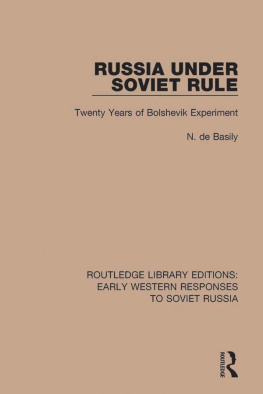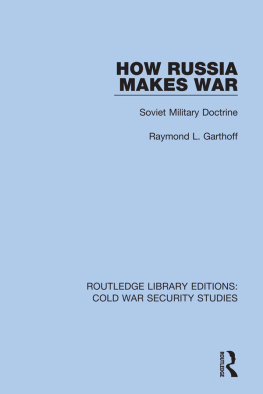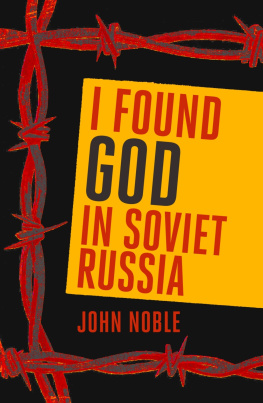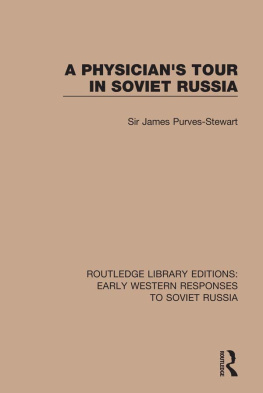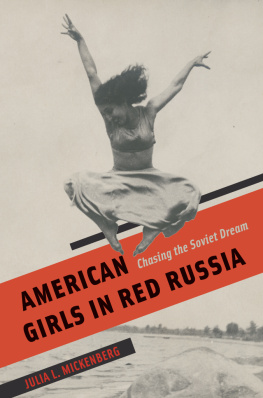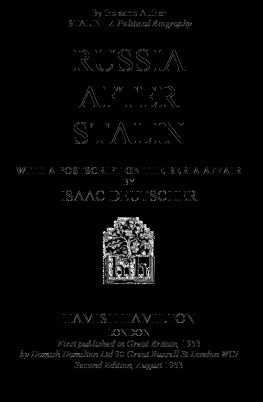Isaac McBride - Barbarous Soviet Russia
Here you can read online Isaac McBride - Barbarous Soviet Russia full text of the book (entire story) in english for free. Download pdf and epub, get meaning, cover and reviews about this ebook. year: 2015, publisher: Forgotten Books, genre: Detective and thriller. Description of the work, (preface) as well as reviews are available. Best literature library LitArk.com created for fans of good reading and offers a wide selection of genres:
Romance novel
Science fiction
Adventure
Detective
Science
History
Home and family
Prose
Art
Politics
Computer
Non-fiction
Religion
Business
Children
Humor
Choose a favorite category and find really read worthwhile books. Enjoy immersion in the world of imagination, feel the emotions of the characters or learn something new for yourself, make an fascinating discovery.

- Book:Barbarous Soviet Russia
- Author:
- Publisher:Forgotten Books
- Genre:
- Year:2015
- Rating:5 / 5
- Favourites:Add to favourites
- Your mark:
- 100
- 1
- 2
- 3
- 4
- 5
Barbarous Soviet Russia: summary, description and annotation
We offer to read an annotation, description, summary or preface (depends on what the author of the book "Barbarous Soviet Russia" wrote himself). If you haven't found the necessary information about the book — write in the comments, we will try to find it.
Barbarous Soviet Russia — read online for free the complete book (whole text) full work
Below is the text of the book, divided by pages. System saving the place of the last page read, allows you to conveniently read the book "Barbarous Soviet Russia" online for free, without having to search again every time where you left off. Put a bookmark, and you can go to the page where you finished reading at any time.
Font size:
Interval:
Bookmark:

| CHAPTER | PAGE |
| Preface | |
| I. Entering Red Land | |
| II. With the Red Soldiers | |
| III. On to Moscow | |
| IV. Moscow | |
| V. Interview With Lenin | |
| VI. Who Is Lenin? | |
| VII. Petrograd | |
| VIII. Bolshevik LeadersBrief Sketches | |
| IX. Women and Children | |
| X. Government Industry and Agriculture | |
| XI. Propaganda | |
| XII. Coming Out of Soviet Russia | |
| Appendix | |
| I. Code of Labor Laws | |
| II. Resolutions Adopted at the Conference of the Second All-Russian Congress of Trades Unions | |
| III. Financial Policy and Results of the Activities of the Peoples Commissariat of Finance | |
| IV. Reports : (a) Metal Industry; (b) Development of Rural Industries; (c) Nationalization of Agriculture |
| Mr. Average Mans Impression of the Meaning of Certain Russian Words |
| FACING PAGE |
| Red Armys Infantry Division |
| Trotzky, Commissar of War and Marine |
| Lenin and Mrs. Lenin, Moscow, 1919 |
| Lenin in the courtyard of the Kremlin, Moscow, Summer of 1919 |
| Lenin at his desk in the Kremlin, 1919 |
| Lenin in Switzerland, March, 1919 |
| Exterior and Interior of Lenins Home in Zurich |
| Gorky and Zinovieff |
| Zinovieff, President of the Petrograd Soviet |
| Chicherin, Commissar of Foreign Affairs |
| Litvinoff, Assistant Commissar of Foreign Affairs |
| Children of the Soviet School at Dietskoe Selo |
| Mrs. Lenin visiting a Soviet School |
| Soviet Propaganda Train |
| Red Terror |
ENTERING RED LAND
Font size:
Interval:
Bookmark:
Similar books «Barbarous Soviet Russia»
Look at similar books to Barbarous Soviet Russia. We have selected literature similar in name and meaning in the hope of providing readers with more options to find new, interesting, not yet read works.
Discussion, reviews of the book Barbarous Soviet Russia and just readers' own opinions. Leave your comments, write what you think about the work, its meaning or the main characters. Specify what exactly you liked and what you didn't like, and why you think so.


